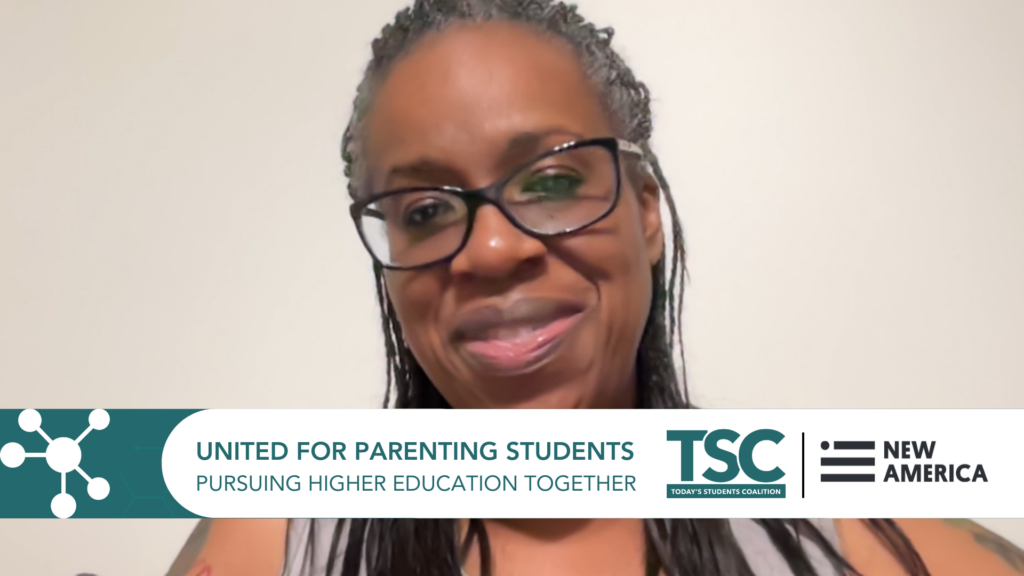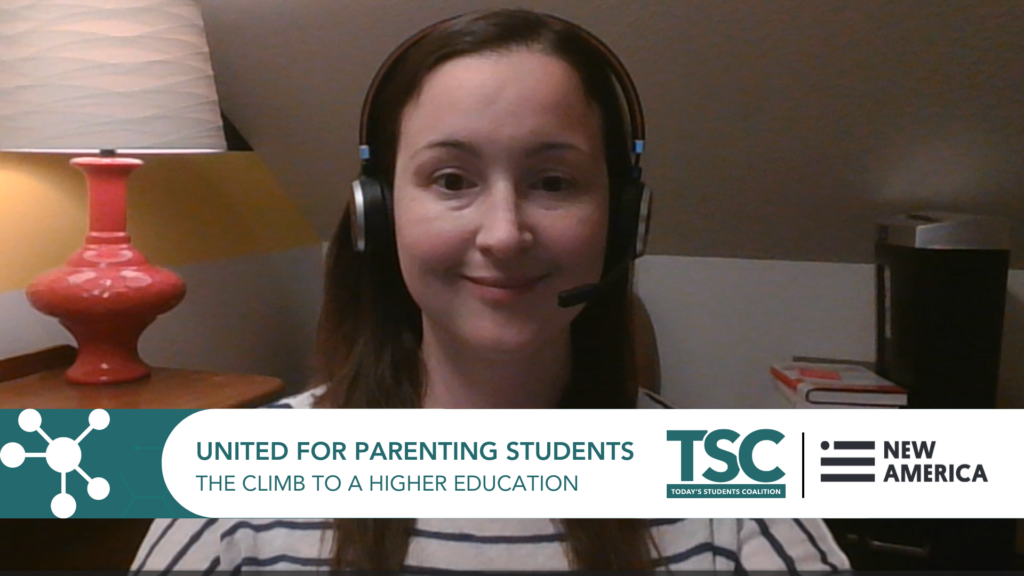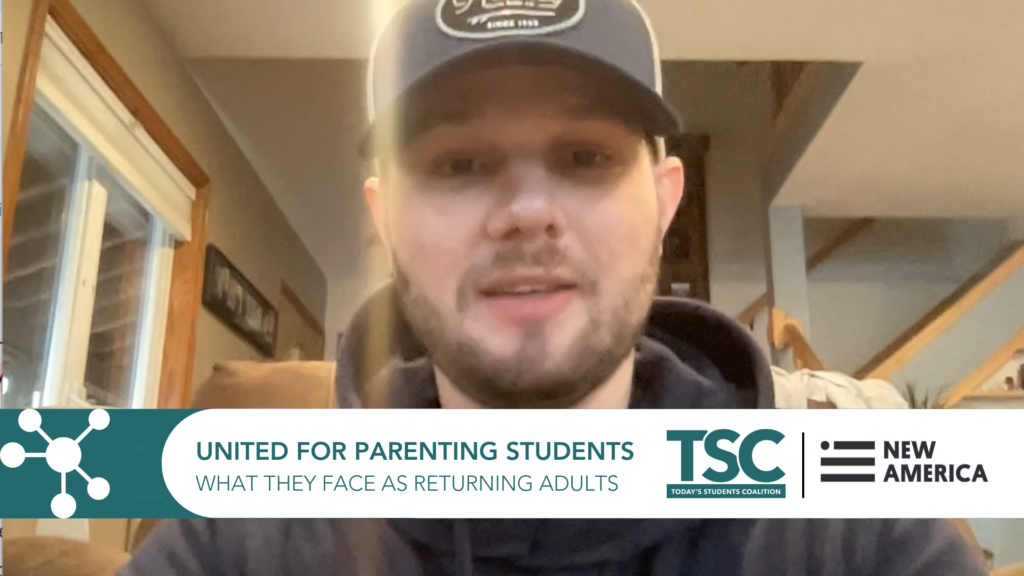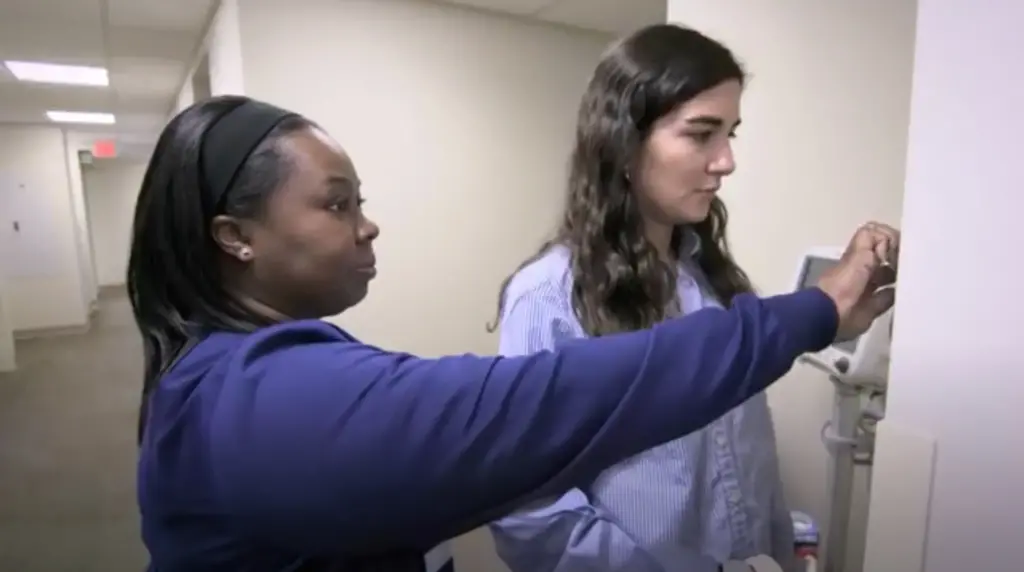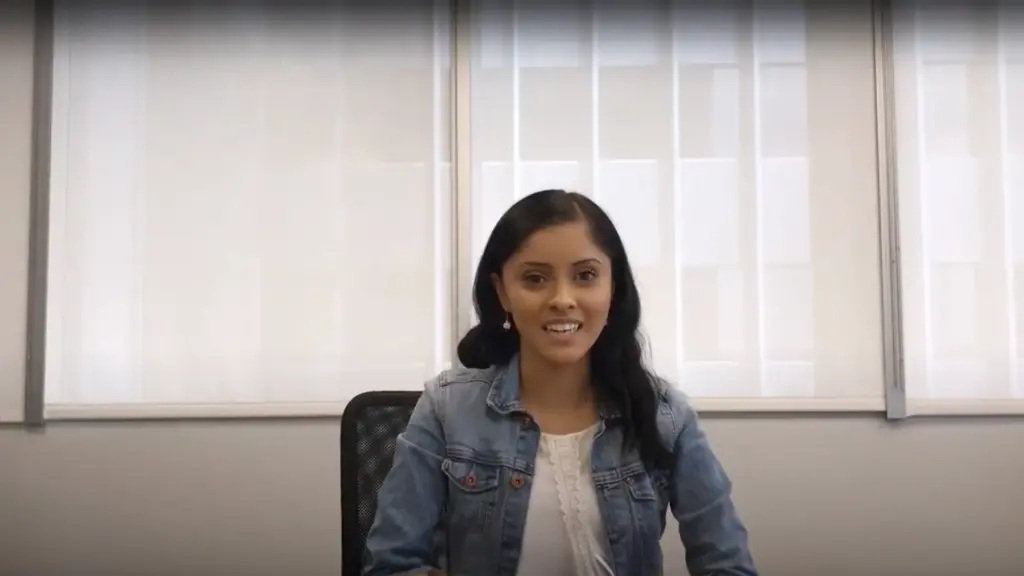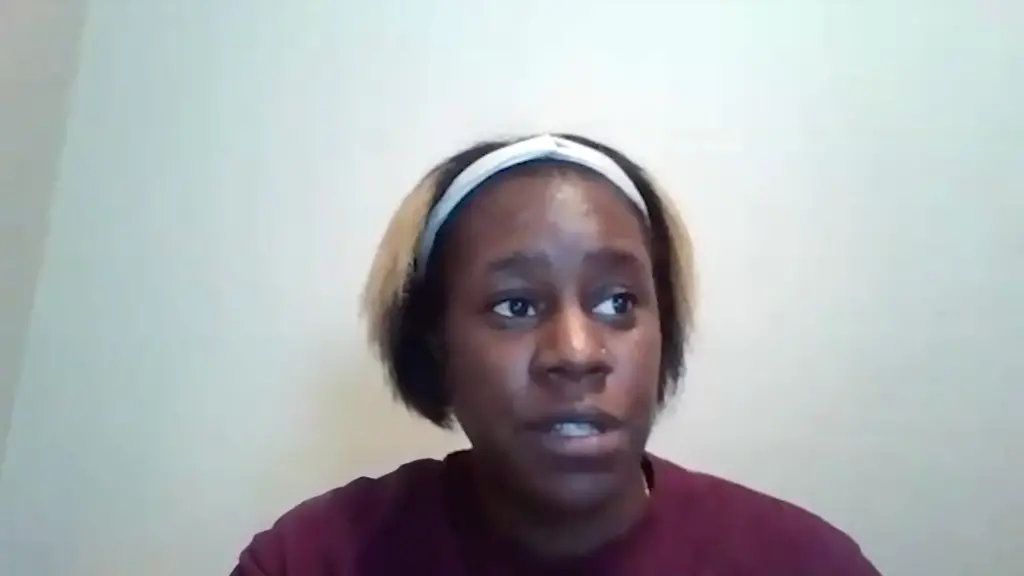CA
La Quenta Lewis
La Quenta Lewis is studying at the Rivet School. She is a mother of three,…
Contributed by: Todays Students Coalition
La Quenta Lewis
La Quenta Lewis is studying at the Rivet School. She is a mother of three, a wife, and the operations manager at an elementary school in Inglewood, California. She’s also pursuing a higher education at the same time as her daughter. But thanks to Rivet School’s competency-based learning model, which allows students to earn credit based on their knowledge of a subject instead of time spent in class, La Quenta is able to balance school, work, and life while also supporting her daughter’s educational pursuit.
MI
Jennifer Shirk
Soon after Jennifer Shirk enrolled in the University of Michigan’s social work program, she discovered…
Contributed by: Todays Students Coalition
Jennifer Shirk
Soon after Jennifer Shirk enrolled in the University of Michigan’s social work program, she discovered she was pregnant. Waitlisted at her school’s child care facilities, she decided a full-time job as she pursued her educational goals would be the only option to afford private care for her son. Mounting pressures from being a college student, mom, and full-time employee caused Jennifer to struggle with her mental health and eventually withdraw from her program. Now, Jennifer is speaking out about her climb to a higher education.
MI
Macauley O’Connell
Macauley O’Connell started college at 19 when he became a parent. He left higher education…
Contributed by: Todays Students Coalition
Macauley O’Connell
Macauley O’Connell started college at 19 when he became a parent. He left higher education to support his new family and started working full-time. Now, a University of Michigan student and dedicated father, he’s sharing his perspective as a returning adult student whose Satisfactory Academic Progress from his first enrollment attempt caused him to lose access to federal financial aid.
KS
Van Tran
Read about Van Tran’s journey to become a mechanical engineer.
Contributed by: Coalition on Adult Basic Education (COABE)
Van Tran
Tony Ismalaj
Senior year of high school wasn’t easy for Tony Ismalaj. For one thing, he had…
Contributed by:
Tony Ismalaj
Senior year of high school wasn’t easy for Tony Ismalaj. For one thing, he had just moved from Albania with his family and barely knew enough English to get by.
“When I came to the U.S. I couldn’t even have a conversation,” he said. “It was depressing the first two years. But, I gave myself two options — one, I can sit here and cry. Or two, I can learn the language.”
Tony stuck with option two. He spent hours locked in his bedroom Google-Translating history lessons word by word until he understood. A year and a half later, he was fluent.
But hard work isn’t the only thing that got Tony through senior year. When the Washington, D.C.-area college access and success program <strong>CollegeTracks</strong>came to his school, he signed up to be matched with a coach who would help him apply to college and stay on top of his work once he got in.
“In the beginning I didn’t see the value of it as much, to be honest,” Tony said. “It’s not that I thought it wouldn’t help me, I just didn’t know how much help I really needed to get to college.”
Now Tony is in his senior year of college at the University of Maryland. He still meets with his coach, Courtney, two or three times a semester. As a kinesiology major and part-time athletic trainer, Tony firmly believes in the importance of having someone to support you through the challenges college presents.
“Just like I am a coach for my clients, I really believe that you’ve got to have someone to keep you accountable,” he said. “It doesn’t matter how good you are.”
Even though he has his job as a trainer, Tony wishes he could earn more money to support himself while in school. His tuition is paid for by federal financial aid and a grant from the university, but he had to take out a small loan to cover living expenses.
“The system is created in a way where you don’t really have time to work if you go to school,” he said. “It’s almost impossible. But my grant relieves so much stress.”
While financial aid has made Tony’s years in college a lot easier, he’s had to work hard not to lose sight of his goals when challenging academic work made things difficult.
“There have been points when I’ve felt like, ‘oh my god, I don’t want to do this’,” he said. “I think every student goes through that, but I got out of it. It’s just about the goal of why you’re going to college and what you want to get out of it.”
For Tony, the goal is to one day open his own gym or develop and sell a line of athletic clothing. He’s spent five years working toward his degree, but after this semester, he’ll graduate and can finally make his dreams a reality.
KS
Shelley Dixon
My higher education began in 1984 and I thought it ended in 1986 when I…
Contributed by:
Shelley Dixon
My higher education began in 1984 and I thought it ended in 1986 when I got married. I have raised two amazing daughters, watched one graduate with a teaching degree, watched one graduate with a medical assistant degree, and am watching my grandkids begin their educational journey. A year and a half ago I decided it was my turn! I enrolled at our local junior college to catch up on classes I needed because I had been out of school for so long. My incredible advisor knew that I had been a special education paraeducator for close to 20 years. She found the Teacher Apprenticeship Program at Wichita State University. The hardest thing for me has been adjusting to, essentially, independent study. Taking classes completely online is difficult because I am missing out on face-to-face personal connections with other students. I have adjusted fairly well. I am proud to say that I currently am carrying a 4.0 GPA and have learned to finish assignments way ahead of time. I have been amazed at the instructors I have encountered.
Wichita State University put together an incredible program that came at the perfect time in the lives of some pretty amazing paras. I know I have made a difference in the lives of so many wonderful students in the last 19 years. However, having my teaching degree will give me an even greater opportunity to influence students during one of the most turmoil-filled eras our country has witnessed for a long time. Students today are encountering trauma that you only knew about because of movies. My heart breaks when I discover the conditions some of our students live in. How, in this day and age, is that possible? I need my degree to show students that it doesn’t matter how old you are when you finally achieve your dreams. As long as they hold onto those dreams, they will carry a small fire with them that can turn into a bonfire at a moment’s notice. Being able to ignite that fire in my very own students is the dream I have held on to these many years.
MO
Sandra Larson
Read about Sandra Larson’s journey to become a financial advisor.
Contributed by: Center for First-Generation Student Success
Sandra Larson
MI
Rosa and Achia
Rosa and Achia are an integral part of Mercy Health in Grand Rapids, MI, where…
Contributed by: National Skills Coalition
Rosa and Achia
Rosa and Achia are an integral part of Mercy Health in Grand Rapids, MI, where 48% of jobs do not require a college degree — but do require some type of skills training. Now they’re learning and growing on the job as Medical Assistant Apprentices
CA
Raquel Gonzalez
Hi, my name is Raquel Gonzalez, and I’m a recent graduate of Cal State LA….
Contributed by:
Raquel Gonzalez
Hi, my name is Raquel Gonzalez, and I’m a recent graduate of Cal State LA. I’m a first-generation college student and earning my bachelor’s degree is one of my greatest accomplishments.
But my college journey was incredibly challenging. People are surprised that it only took me 5 years to finish, given the journey I had. After high school, I was offered a full ride to UC Merced, where I completed my freshman year.
Unfortunately, due to family circumstances, I had to return to Los Angeles to provide some financial support to my parents and four siblings. Leaving school was not an option, so I enrolled full-time at a community college and worked three different jobs to make ends meet. But even though I completed an entire year at a UC, the community college would not accept most of the units I completed.
On top of that, I passed AP Calculus in high school with an A minus and was placed directly in college-level math at UC Merced. So I was completely shocked when I was placed in basic skills math in community college…that is 3 levels below transfer-level! To this day, I wonder why no one ever thought that maybe those UC credits should have transferred? Or maybe the assessment test was flawed? If the UC thought I was college-ready…why wasn’t it good enough for my community college?
I didn’t know any better, I thought the counselors would. But every counselor I met gave me different information. There are so many other examples I can share but eventually I did find one counselor who was my advocate. I was determined to transfer quickly and I certainly didn’t make my life easier by doing this, but I worked multiple jobs while in college, I took more than 12 units a semester, and never took a break from a session. It wasn’t easy and college never is…but I didn’t have to experience those hardships. Today’s students are faced with difficult circumstances…they work full time; they may be parents, they may be the role providers for their families…and all of this affects their education. I wish colleges just saw the best potential out of every student and believed that they will be successful. I hope that our colleges and state leaders develop policies with this in mind. We can be successful, but we can’t with the many institutional barriers in place. Higher education is important to me because it provides me with the tools and knowledge I need to succed in life and my career.
TX
Osh’shalee Handy
Osh’shalee is a student at Texas State University, where she is studying to become an…
Contributed by: Todays Students Coalition
Osh’shalee Handy
Osh’shalee is a student at Texas State University, where she is studying to become an art teacher. Due to the coronavirus pandemic, her classes were moved online, but only two of the three were able to be taught in that format. Osh’shalee discusses the changes to her own higher education plans, as well a how the pandemic affects today’s students.

